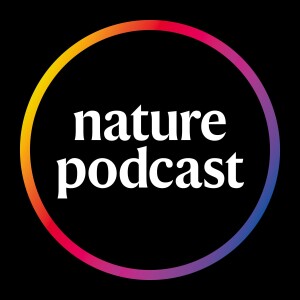
Astronomers are worried by a satellite brighter than most stars
 2023-10-04
2023-10-04
In this episode:
00:45 A bright satellite is concerning researchersSatellites reflect sunlight down to Earth, and some do so with such intensity it risks obscuring astronomers' observations from ground-based telescopes. A paper in Nature suggests that the telecommunications satellite called BlueWalker 3 at times outshines most stars visible from Earth. Astronomers worry about the increasing number of such bright satellites making astronomy more difficult, and so the team suggest that future launches should undergo impact assessments.
Research article: Nandakumar et al.
Nature News: Huge new satellite outshines nearly every star in the sky
09:27 Research Highlights
Analysis of carrot genomes reveals how the vegetable got its orange hue, and the self-healing diamond that can fix microscopic fractures.
Research article: Coe et al.
Research Highlight: Crack this kind of diamond, and it heals itself
11:47 The last meal of a 400-million-year-old trilobite
Trilobites are a group of extinct marine arthropods distantly related to animals like crabs and spiders. Although found throughout the fossil record, little is known about the lives of this diverse group of animals. Now, a team has used powerful x-rays to peer inside a trilobite fossil and uncovered the contents of its last meal, over 400-million-years ago. This animal appears to have been an unfussy scavenger, gorging itself on a variety of small, shelled animals.
Research article: Kraft et al.
22:20 Nobel News
Flora Graham from the Nature Briefing joins us to talk about the winners of this year’s science Nobel Prizes.
Nature News: Pioneers of mRNA COVID vaccines win medicine Nobel
Nature News: Physicists who built ultrafast ‘attosecond’ lasers win Nobel Prize
Nature News: Tiny ‘quantum dot’ particles win chemistry Nobel
Subscribe to Nature Briefing, an unmissable daily round-up of science news, opinion and analysis free in your inbox every weekday.
Hosted on Acast. See acast.com/privacy for more information.
More Episodes
 2022-03-17
2022-03-17
 2022-03-16
2022-03-16
 2022-03-09
2022-03-09
 2022-01-28
2022-01-28
Create your
podcast in
minutes
- Full-featured podcast site
- Unlimited storage and bandwidth
- Comprehensive podcast stats
- Distribute to Apple Podcasts, Spotify, and more
- Make money with your podcast
It is Free
- Privacy Policy
- Cookie Policy
- Terms of Use
- Consent Preferences
- Copyright © 2015-2024 Podbean.com


